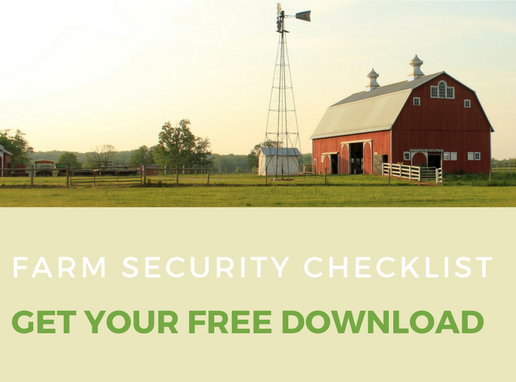Post updated May 21st 2021, link to update here
Fried chicken is only good on the dinner table, and roast turkey is great… but only if it's roasting in your oven. If you want your broilers to thrive, and your layers max out their production, you have to keep them comfortable in the poultry house first. To do that you're going to need to take some steps to make sure your barn is well maintained, and you'll need a reliable monitoring system for your farm that records data and sends you alarms when there’s a problem.
1. Air quality
Fresh air is the highest priority for keeping your birds alive; depending on the severity of the problem, a flock can die within minutes if fans fail, and poor air quality in general can lead to health and productivity problems. Your main priority should me making sure that the ventilation system stays running, and then setting the ventilation system correctly and keeping it running well is very important. A functional ventilation system reduces disease risks, keeps humidity and dust levels low, and is your first line of defense against high temperature. High humidity, excessively dusty air, and temperatures that swing widely up and down are some indications that your ventilation system is not working properly. Tracking humidity and temperature in your barns is a good way to gage how well your ventilation system is operating. The following article on The Poultry Site has a more detailed discussion: Key Factors for Poultry House Ventilation
Smart Barn Humidity Sensor
2. Temperature
Full-grown chickens have a natural body temperature of 104-107°F, so high ambient temperatures not ideal for your flock. While heat stress is more likely with broilers because of their muscle mass and fat content, the egg size and quality of your layers can also be negatively affected even at just 85°F. Chickens can’t sweat, so the cool off by panting and drinking more. To be sure your chicken house is cool in the summer and warm enough in the winter, you need to be monitoring your barns 24x7, and keeping your ventilation system running at maximum efficiency. Poultry Hub has a lot more info here: Climate in poultry houses
smart barn temperature sensor
3. Water
Chickens generally drink twice as much as they eat, but in times of heat stress their water consumption can double or even quadruple. A flock of broilers can drink 50-100,000 gallons of water, so it’s well worth your while to keep an eye on your water usage as well. Monitor it from the palm of your hand with Smart Barn’s remote wireless water meter.
smart barn water meter
4. Physical Security
You keep your chickens contained for good reason. Predators abound, from foxes and raccoons to even cats and dogs, and they all want a piece of your chickens. A door left open could cost you dozens of chickens if not your entire flock. It’s easy to overlook whether or not doors get shut, and anxiety over whether or not your flock is safe can keep you from leaving your farm. Why make farming any more stressful than it has to be? A door sensor is an easy solution, and Smart Barn’s lets you monitor your door status from wherever you are.
smart barn door sensor
Smart Barn is a comprehensive remote monitoring system that not only alerts you when something isn't right on your poultry farm, but allows you to check on your flock whenever you want from the convenience of your phone, tablet or internet browser. Stop losing sleep worrying about your chickens - take a look at our full line of sensors and contact us today!
Or click the button below for a FREE security checklist!





